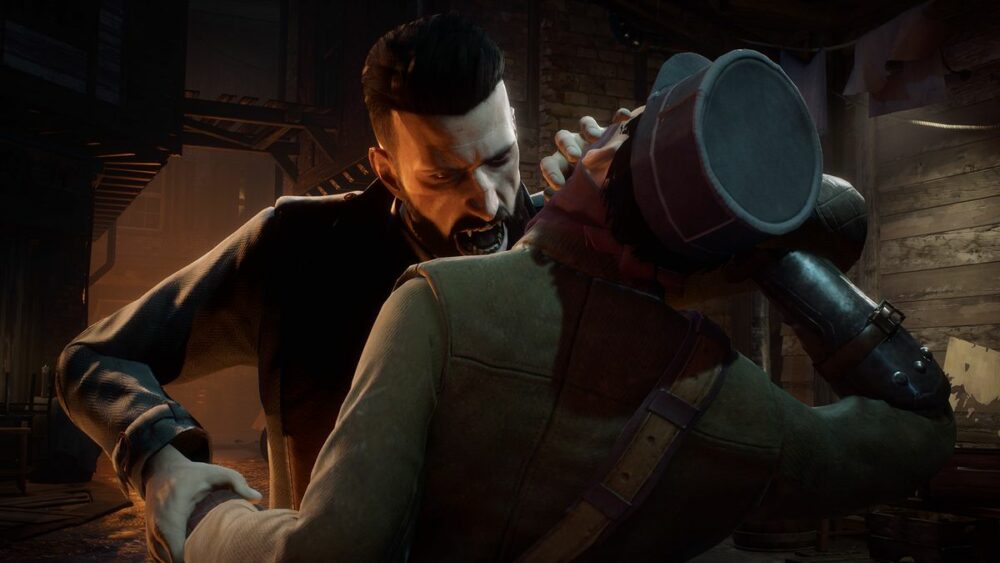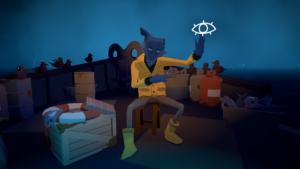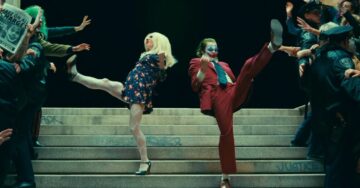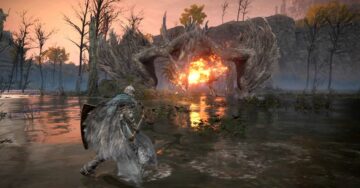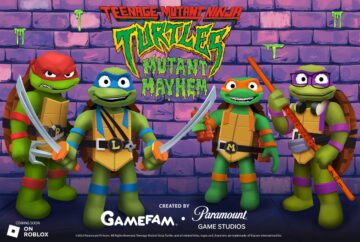It can be hard to keep up with Don’t Nod. The French studio has established itself with an eclectic oeuvre of mid-budget games featuring a strong emphasis on storytelling, from its sci-fi debut Remember Me to its beloved teen drama Life Is Strange and its latest: Banishers: Ghosts of New Eden.
A follow-up to the studio’s cult-classic 2018 role-playing game Vampyr, Banishers: Ghosts of New Eden takes after its predecessor — which saw a physician tormented by his transformation into a vampire in the wake of the Spanish flu pandemic following The Great War — by using the supernatural premise to build out character-driven morality plays, this time with a game-spanning romance.
In Banishers, players take on the dual roles of Red mac Raith and Antea Duarte, partners in love and occupation. The eponymous Banishers, they’re ghost hunters and exorcists faced with a personal crisis when Antea is killed in a haunting and must accompany Red in non-corporeal form. Through the game, as players solve hauntings as the mortal Red and the ghostly Antea, players must continually revisit the question: Will Red resurrect Antea or banish her to the afterlife?
To talk a bit about Banishers’ unique approach to video game morality, romance, and supernatural horror, Polygon spoke with Don’t Nod creative director Philippe Moreau and narrative lead Stéphane Beauverger, who had lots to say about making choices hard for players and the importance of putting players on both sides of a love story.
Polygon: Don’t Nod has made so many different types of games over the years — what would you say a Don’t Nod game is?
Philippe Moreau: We like to do different things, but I think the common ground that we have is that we love to make players responsible, to push them to think about their actions, about the meaning of what they’re doing. Involving people in the game, not just shooting and you just put your brain off.
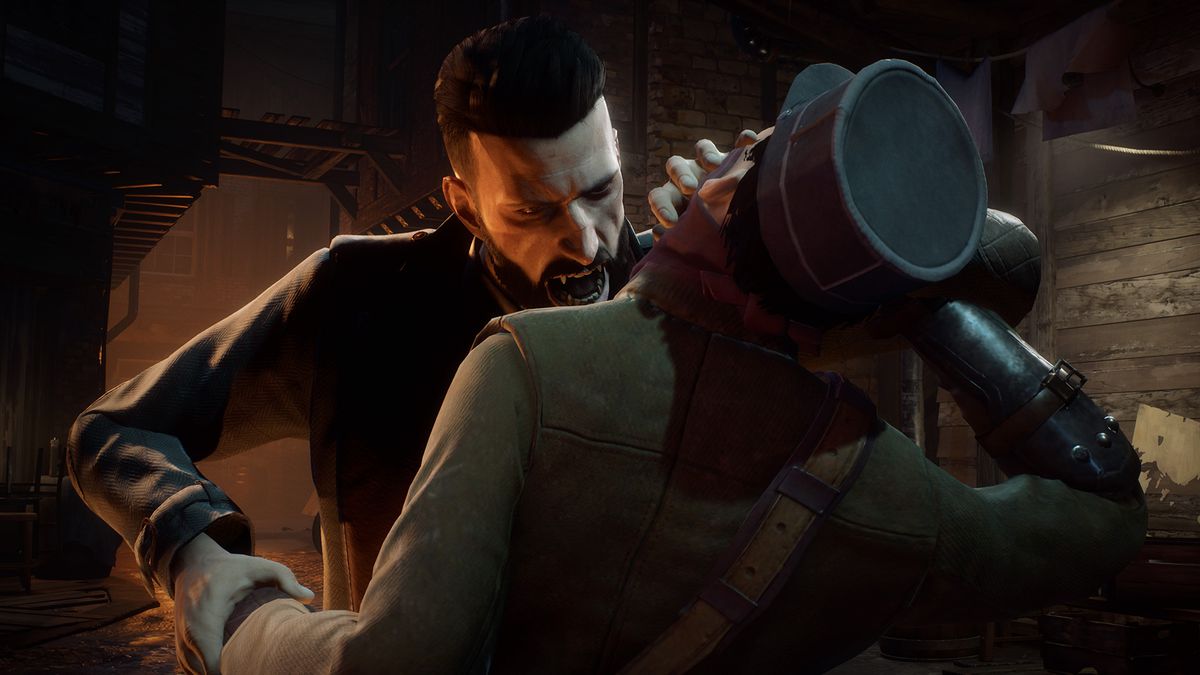
Stéphane Beauverger: Maybe also a tendency to ask questions more than give answers.
Don’t Nod’s output has grown over the years as the company has grown. It’s now both a studio [with two locations] and a publisher. Do you think people are aware of this? Does it matter or affect their expectations?
Beauverger: Sometimes it kind of frightens us that people start to see us as a AAA games studio. No no no! We’re still small! We are still gently crafting AA games. We try to be generous and passionate about what we do, but we are not a AAA studio, not at all. I think most of the time we have between three and six or seven projects, counting the games produced or distributed by Don’t Nod.
Banishers seems to fit that [AA] mold as a love story. Was making one of those your first impulse when starting development?
Beauverger: The love story came once we knew we were going to tell a ghost story. We did something about vampires already. What’s new? Mummies? Not very interesting. Werewolves? Eh! Ghosts? OK, ghosts are cool.
What’s the specificity of a ghost? It’s emotion, regrets, melancholy, secrets, something that has not been told by someone who died who has something to say before going for good. A love story of grief was something very specific to the concept of ghosts.
And ghosts give you the backbone of the game’s morality, what ritual to banish them with, who to blame for a haunting. How do you know when a choice is compelling and difficult for the player?
Beauverger: We try to make sure that the characters you meet have reason to shine and reason to be potentially hated. They have deep motivation. For the player’s mental safety we have some real 100% assholes so you have a free pass on them! You can kill them without too much brain torture. But for the rest of the characters, we tried to make sure that you could understand every side of the story or the conundrum. So it will be up to you.
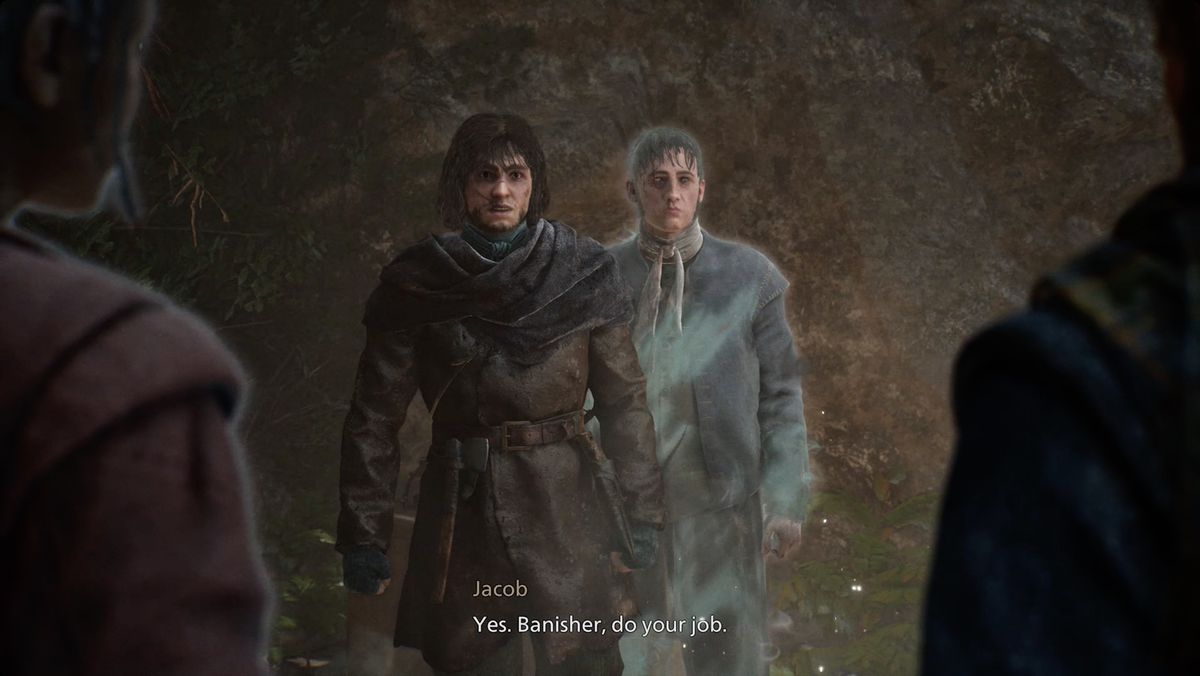
Moreau: To check if it works, we usually run a lot of playtest sessions, where we can see the different options that players choose. And if we can find balance between the different options, it means we did a great job and we have nothing to change. But if there is too big of a convergence, we need to maybe readjust characters a bit, or maybe it’s a story that has been wrongly told. So we maybe readjust the different hints that the players will discover, to make sure that they really understand the motivations, that they can connect all the dots of the story to make sure that they’re about to make a true choice in the end.
Beauverger: We also know that statistically, most players prefer to play the good guy. Something like 75% or 80% of players prefer to to play the white knight. So we have to find a way to incite them. To be tempted by the dark side, one way or another. For instance, to bring Antea back to life means you will have to kill a lot of people.
Is it exciting for you when you see people taking a long time to make a choice?
Beauverger: Oh, you have no idea. Each time I’m watching a Twitch stream and someone is putting down the pad I say, “Yeah! We did it!”
How do you get the player to care deeply about Antea and want to resurrect her when it is such a morally fraught decision?
Moreau: Antea has been very challenging. We worked a lot on her to make sure that she’s not just a sidekick, that she’s not just here to pile on or make jokes or just use some powers at some point. We had golden rules: Antea has to be a driving force, a positive force, and she has to be always there during the cinematics. If you pay attention, you can see that most of the time she is in the shot, even if she has nothing to say.
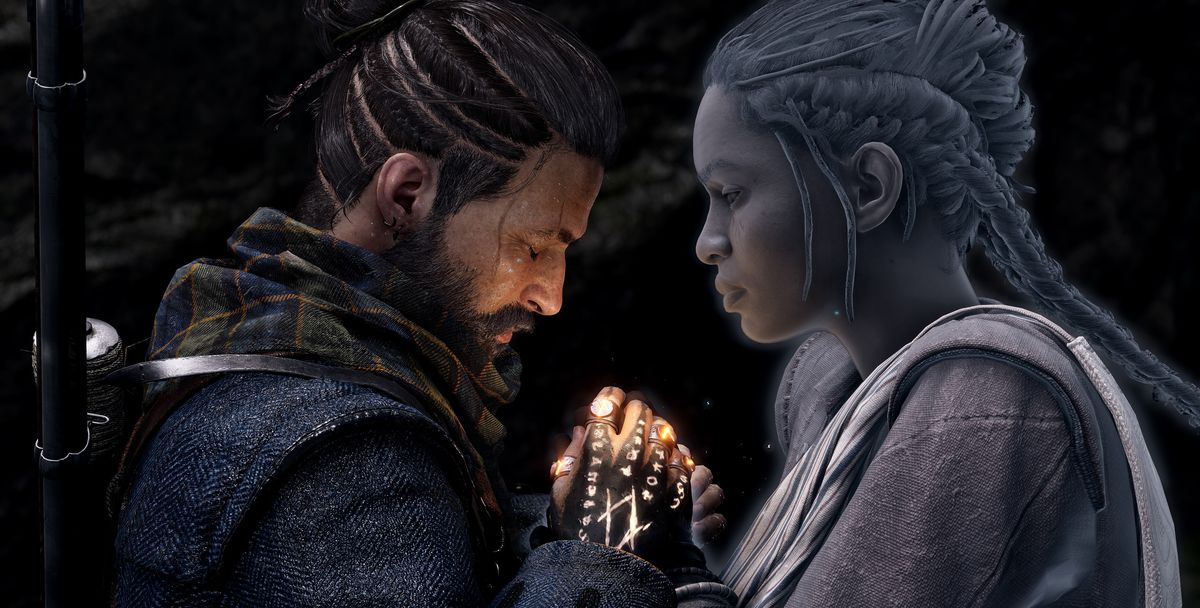
Gameplay-wise, we make sure that you can use her as much as Red. That’s why the switch feature is there — it was not there at the conception of the game. We gave her a lot of abilities to make sure that players will play as her, and to find the right balance between the two characters to make sure people have the impression of playing a couple.
I appreciate how the central dilemma in Banishers is centered on this couple’s moral obligations to each other, not necessarily the morality of world-shaking decisions like in a lot of other games. To me it plays with ideas about love making you something you didn’t know you were, and I’m curious if that’s a lever you wanted to lean on.
Moreau: Yeah, that’s why we decided to make a love story, to generate this kind of immersion and these kinds of complex choices. Love is something personal, something intimate. So we’re pretty sure that people will react very differently because of their relationship with love. I think it can resonate with people. I hope so.
Beauverger: Another golden rule we had during the creation of the game was: Red and Antea always work as a couple. And you are going to play both sides, because we [could have] told the players, “OK, you are playing Red, you’re in love with this woman, and she’s in love with you. And you have to accept that fact.”
But since you play both sides of the couple, and all the decisions are made by both characters that never 100% agree on anything. This was very important for us. It makes the player intuit that they’re dealing with and controlling a love story and a couple, and not receiving some kind of forced love from another character. A few journalists asked us why there aren’t so many love stories in video games, and I think it’s because of that. It’s not easy for a player to be told “You are in love with this woman or this man, and you have to act like this.” But when you say “You’re a couple. You play both of them. This is a package!” it’s easier, I think.
- SEO Powered Content & PR Distribution. Get Amplified Today.
- PlatoData.Network Vertical Generative Ai. Empower Yourself. Access Here.
- PlatoAiStream. Web3 Intelligence. Knowledge Amplified. Access Here.
- PlatoESG. Carbon, CleanTech, Energy, Environment, Solar, Waste Management. Access Here.
- PlatoHealth. Biotech and Clinical Trials Intelligence. Access Here.
- Source: https://www.polygon.com/24075083/dont-nod-interview-banishers-ghosts-of-new-eden
- 1947
- 2018
- a
- AAA
- abilities
- About
- accept
- accompany
- act
- actions
- affect
- after
- All
- already
- also
- always
- an
- and
- Another
- answers
- Anything
- appreciate
- approach
- ARE
- as
- ask
- At
- attention
- aware
- back
- Backbone
- balance
- BE
- Bears
- because
- been
- before
- beloved
- between
- BIG
- Bit
- both
- brain
- bring
- build
- but
- by
- came
- CAN
- care
- case
- centered
- central
- challenging
- change
- character
- characters
- check
- choice
- choices
- choose
- Common
- company
- compelling
- complex
- concept
- conception
- connect
- continually
- controlling
- conundrum
- convergence
- cool
- could
- counting
- Couple
- crafting
- creation
- Creative
- crisis
- Curious
- Dark
- dealing
- debut
- decided
- decision
- decisions
- deep
- deeply
- Development
- DID
- died
- different
- differently
- difficult
- Director
- discover
- distributed
- do
- does
- doing
- down
- dr
- Drama
- driving
- dual
- During
- each
- easier
- easy
- emotion
- emphasis
- end
- Entertainment
- established
- even
- Every
- Exciting
- expectations
- faced
- fact
- Feature
- featuring
- few
- find
- First
- fit
- Following
- For
- force
- forced
- form
- fraught
- Free
- French
- from
- game
- Games
- Gaming
- gave
- generate
- generous
- Get
- Ghost
- give
- going
- golden
- good
- great
- Ground
- grown
- had
- hands
- Hard
- has
- haunting
- Have
- heads
- her
- here
- hints
- his
- hold
- hope
- Horror
- How
- HTTPS
- i
- idea
- ideas
- if
- immersion
- importance
- important
- in
- instance
- interesting
- intimate
- into
- Intuit
- involving
- Is
- IT
- ITS
- itself
- Job
- Jonathan
- Journalists
- jpg
- just
- keep
- kill
- kind
- kinds
- know
- latest
- lead
- lever
- Life
- like
- living
- locations
- Long
- lot
- lots
- love
- mac
- made
- make
- MAKES
- Making
- man
- many
- matter
- maybe
- me
- meaning
- means
- meet
- mental
- moral
- more
- mortal
- most
- motivation
- motivations
- much
- must
- narrative
- need
- never
- New
- no
- not
- nothing
- now
- obligations
- of
- off
- oh
- on
- once
- One
- Options
- or
- Other
- out
- output
- over
- pad
- pandemic
- partners
- pass
- passionate
- Pay
- People
- personal
- Philippe
- physician
- plato
- plato data intelligence
- platodata
- platogaming
- play
- player
- players
- Playing
- plays
- Point
- Polygon
- Positive
- potentially
- powers
- predecessor
- prefer
- pretty
- Produced
- projects
- Publisher
- push
- put
- putting
- question
- questions
- React
- really
- reason
- receiving
- red
- relationship
- resonate
- responsible
- REST
- right
- Role-Playing
- roles
- Romance
- Rule
- rules
- Run
- Safety
- saw
- say
- Sci-Fi
- secrets
- see
- seems
- sessions
- seven
- she
- shine
- shooting
- shot
- side
- sides
- since
- SIX
- So
- SOLVE
- Solving
- some
- someone
- something
- Spanish
- specific
- start
- Starting
- still
- Stories
- Story
- storytelling
- stream
- strong
- studio
- such
- supernatural
- sure
- Switch
- Take
- takes
- taking
- talk
- teen
- tell
- than
- that
- The
- The Game
- their
- Them
- there
- These
- they
- things
- think
- this
- those
- three
- Through
- time
- to
- together
- told
- too
- torture
- Transformation
- tried
- true
- try
- Twitch
- two
- types
- Understand
- unique
- up
- us
- use
- using
- usually
- vampire
- very
- via
- victim
- Video
- video games
- wake
- want
- wanted
- war
- was
- watching
- way
- we
- were
- What
- when
- where
- white
- WHO
- why
- will
- with
- without
- woman
- Work
- worked
- works
- would
- years
- you
- your
- zephyrnet
